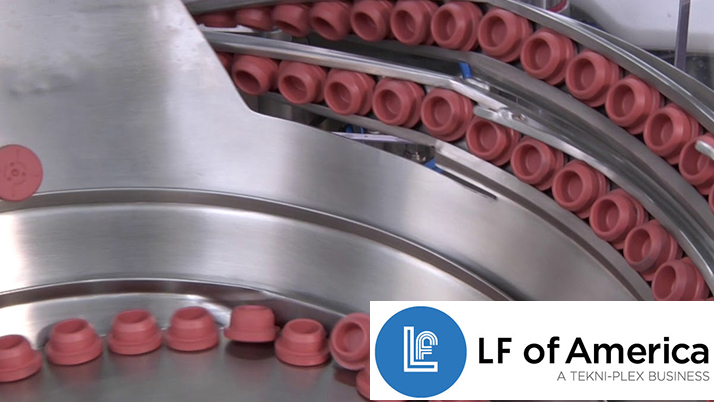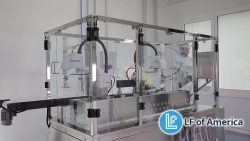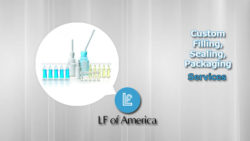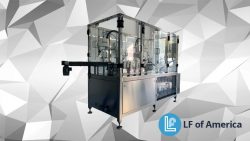
What is Contract Packaging? Whether a packager is a start-up company or a Fortune 500 that delivers a wide range of products to the general public every day, there are advantages and disadvantages to packaging your own product. A quick analysis of each given packaging project will help to decide which is better, in-house packaging or contract packaging. In-house packaging is costly because of the equipment required. LF of America offers a variety of contract packaging services.
- UNIT DOSE PACKAGING
- BELLOW BOTTLES
- WAND TUBES
- ENEMA CONTAINERS
- BOTTLES WITH DROPPERS
- DUAL CHAMBER BOTTLES
- VAGINAL USE
- MULTI-LAYER TECHNOLOGY
- PACKAGING MANUFACTURING
- CONTRACT FILLING
In general, a contract packager is one who packages other people’s products for them. There are a number of reasons that someone may choose to use a contract packager. For some start-up companies, the idea of investing in packaging machinery for a new product that may or may not become popular can be a little daunting. New companies may choose not to purchase packaging equipment – liquid fillers, capping machines, power conveyors, and other machinery – until they are certain that their product has a hold in the market.
Others new to the packaging industry may feel they do not have the necessary knowledge to run sophisticated packaging machinery. Or perhaps new companies simply do not have space and labor necessary to operate their own packaging machinery. Even larger companies may find reasons to employ a contract packager from time to time. Short runs of special products, such as holiday editions, may be sent to a contract packager so as not to interrupt the normal packaging operations of the facility.
New products or test products may also be sent to a contract packager, under the same short-run logic mentioned above or because the facility simply does not have the necessary machinery to run the product. Though various packaging machines such as fillers, cappers, and labelers can usually run a variety of products, different machines may be necessary for different products. For example, a thin, free-flowing product will run fine on an overflow filling machine, but a thick, viscous product usually will not.
So small or large, there exist reasons for companies to consider using a contract packager for their product or products. On the other hand, there also exist reasons for these companies to purchase their own packaging machinery as well. Almost all packaging machinery, from container cleaning equipment to filling machines, capping machines, and labeling equipment, is manufactured in various levels of automation. For a start-up company, manual or semi-automatic machinery may be enough to fulfill all production needs. Tabletop packaging machinery is even available for those facilities with extremely limited production space. Much of the semi-automatic equipment can usually be upgraded to automatic machinery as well, which allows the packaging machinery to grow with the company as demand for a product increases. For larger companies, fully integrated, fully automatic packaging lines can be acquired to handle much larger production demands than the start-up companies will usually see. These systems can be fine-tuned to handle the specific products and packages being used to maximize efficiency and reliability versus general packaging machinery that may be used on several different projects for several different customers by contract packagers. In addition, automatic packaging systems will not necessarily require additional labor, as will usually be needed for manual or semi-automatic machinery.
So understanding why one would choose to use a contract packager and why one might choose to purchase their own packaging machinery, really becomes a question of balancing and weighing the benefits for any given project. Using a contract packager may free up cash flow in the short term. Purchasing your own packaging equipment may do the same in the long term. Using a contract packager could, in the right situation, substantially cut labor and overhead costs. But in other situations, the purchase of packaging machinery may not require any additional labor. Both of these methods of packaging a product offer a viable solution for most businesses, but in most cases, a quick analysis will show that one will simply be more beneficial than the other for a given project. Taking the time to make this analysis is a crucial step in sending a packaging business in the right direction.
Call LF of America to find about more about our contract packaging services. 561-988-0303





